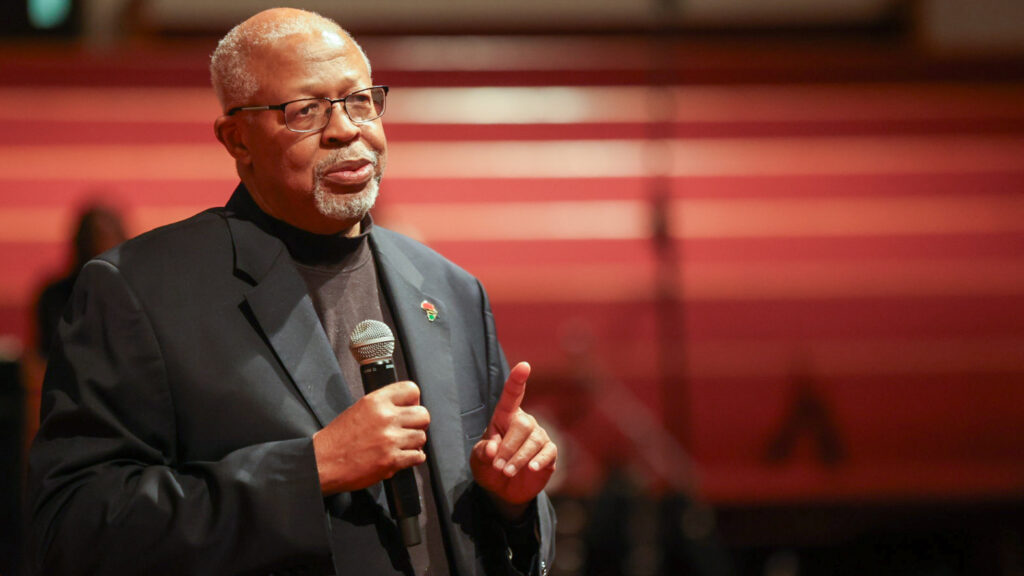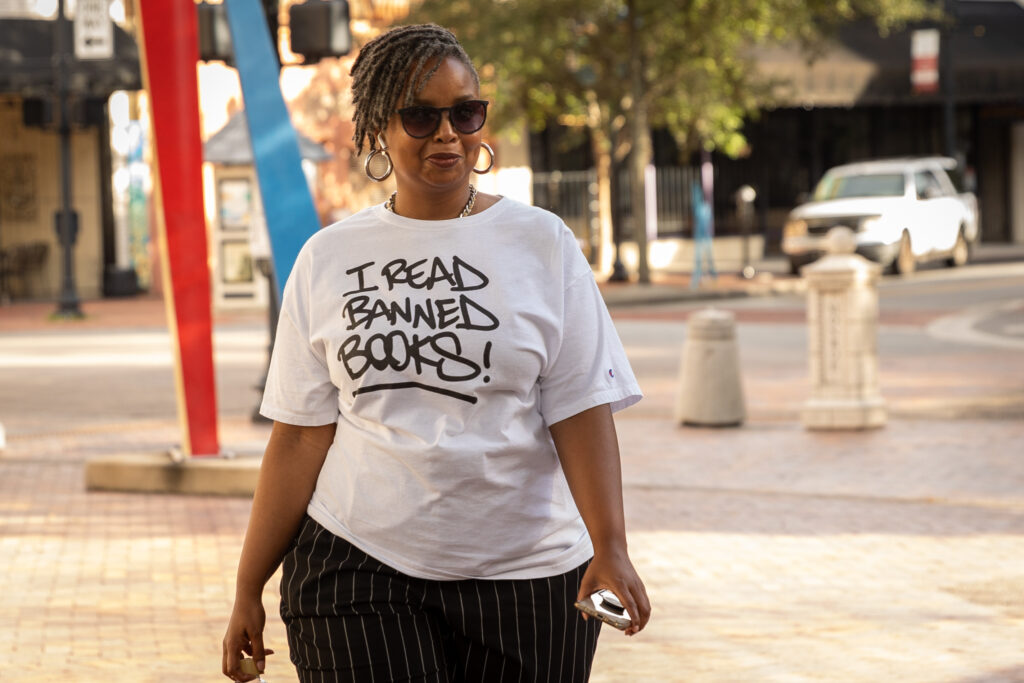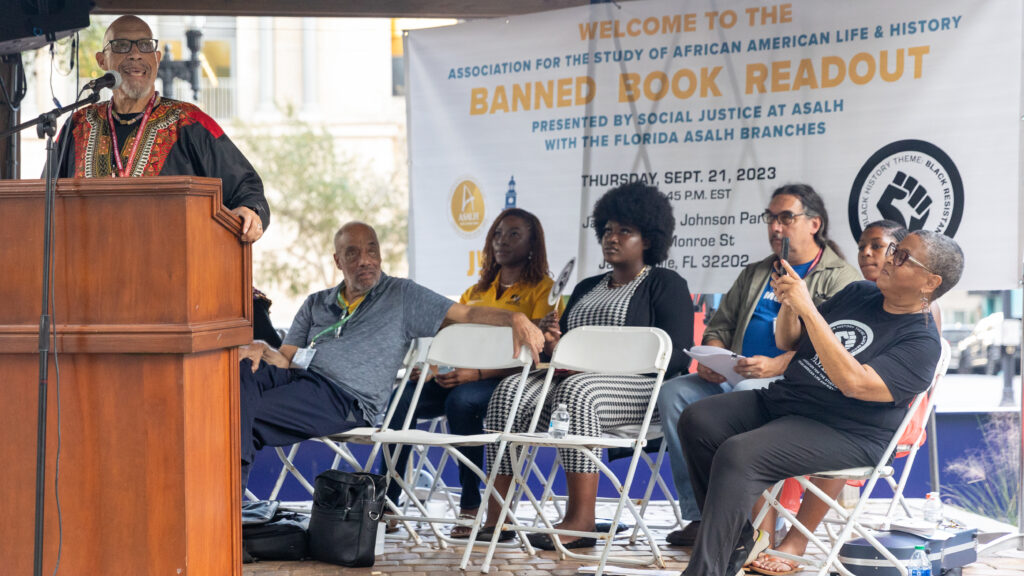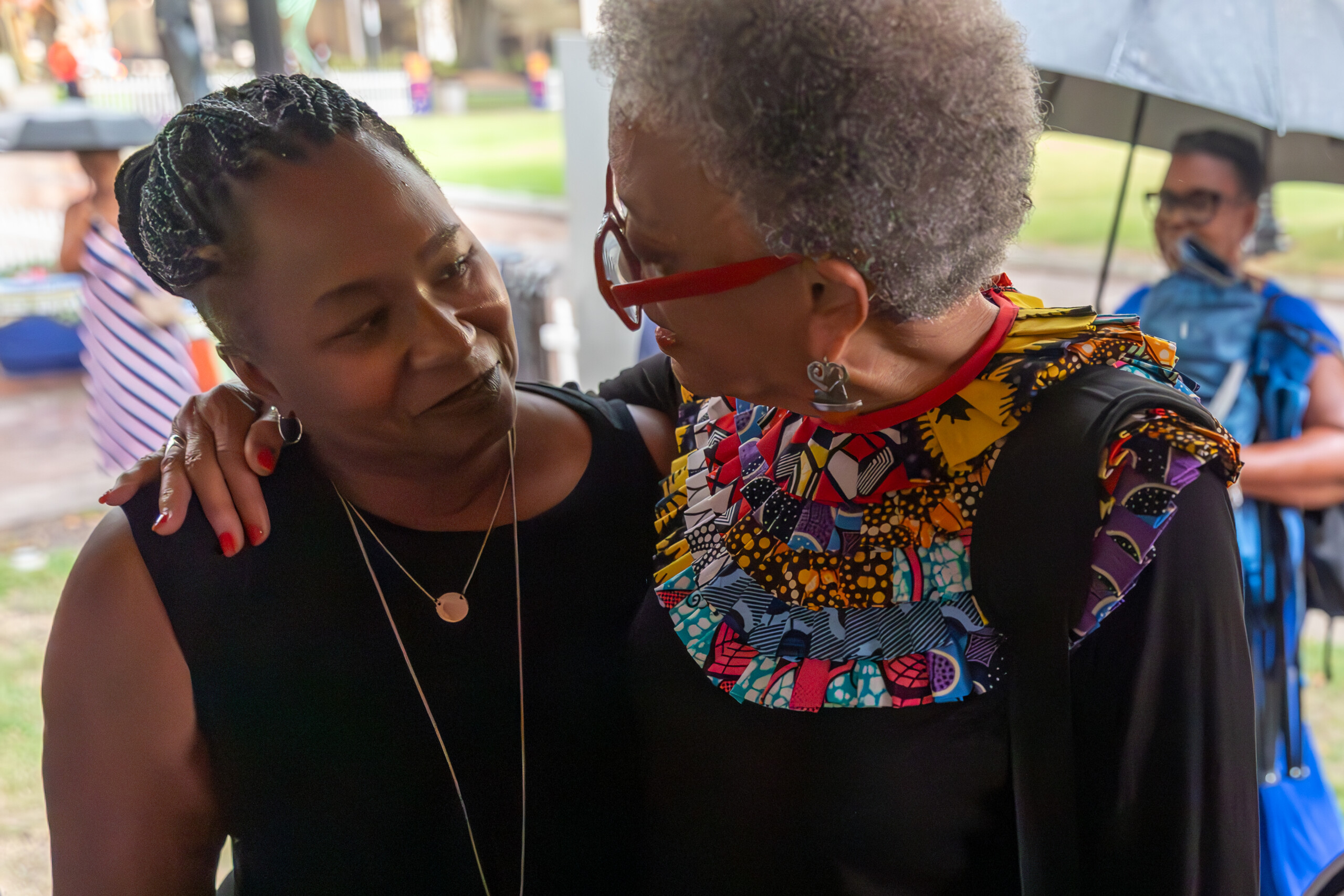The Association for the Study of African American Life and History came to Jacksonville to fight what it considers the discriminatory policies of Florida Gov. Ron DeSantis — and to celebrate the work of African American authors.
The group’s 108th annual conference concluded over the weekend, just weeks after a white supremacticst killed three Black people on Jacksonville’s Westside.
The four-day gathering of nearly 1,000 historians, academics, students and activists focused on Black resistance. More than 200 people protested Florida’s racial climate by reading passages from authors whose work has been restricted in schools here.
Speakers read from the works of authors that included James Baldwin, Zora Neale Hurston, Amanda Gorman and Toni Morrison.
The group’s president, W. Marvin Dulaney, and the presidents of six Florida chapters started with Nikole Hannah Jones’ The 1619 Project.

The book won a Pulitzer Prize for its examination of slavery and the legacy of Black Americans. It’s banned from Florida classrooms under a law signed in April 2022 that restricts race-related instruction.
Together the chapter presidents read Jones’ words: “Learning history made the world make sense. It provided the key to decode all that I saw around me.”
Jacksonville activist Kelly Frazier read a passage from Amanda Gorman’s The Hill We Climb.
“We’ve seen a force that would shatter our nation rather than to share it,” Frazier read. “And this truth, and in this faith we trust. For while we have our eyes on the future. History has its eyes on us.”
Four weeks earlier, Frazier was in the same park protesting white supremacy. She and a multigenerational, multiethnic and interdenominational coalition decried a perceived attack on Black residents that they believe helped motivate the white supremacist gunman in Jacksonville.
The significance of the location was not lost on Dulaney.

He said that reading at a park renamed after James Weldon Johnson — a civil rights activist, poet and historian — exemplified Black resistance.
“We’re supposed to be an open society,” Dulaney said. “The last society that banned books was Nazi Germany. Not only did Nazi Germany ban books, they burned the books, So, we want to counter all of that and show that learning, sharing information is a positive thing and not a negative one.”
Johnson, a Jacksonville native, wrote Lift Every Voice and Sing, which became known as the Black National Anthem. It was first performed less than a mile from the park that now bears his name.
James Weldon Johnson Park was named three years ago amid calls for racial equity. It was previously named after Charles Hemming, a Confederate soldier who spied for them.
Thursday evening, scores of people filed into the park in the heart of Downtown Jacksonville. They stretched onto a grassy area that for more than a century contained a statue of a Confederate soldier.

Deidre Foreman came from New Jersey to Northeast Florida because Foreman felt it vital to argue against false narratives about Black culture and books by African American authors.
Foreman, an African American studies professor at Rampano College, said it’s appropriate for the ASALH to bring its fight for truth to Florida.
“No one should be deprived the opportunity to read and learn more about the world and other cultures,” Foreman said. “I don’t care whose culture it is. This is America. And, everyone’s culture should be respected.”
The event concluded with former Spelman College President Johnnetta Betsch Cole reading from Maya Angelou’s I Know Why the Caged Bird Sings.
“We have come treading our past through the blood of the slaughter,” Cole read. “While echoes of the song shivered in the air, Henry Reed bowed his head and said ‘Thank you.’ And returned to his place in the line. The tears that slipped down many faces were not wiped away in shame. We were on top again. As always again. We survived. The depths had been icy and dark. But, now a bright sun spoke to our souls.”
Lead image: Diana Greene, left, speaks with Johnnetta Betsch Cole after a reading of banned and restricted books in James Weldon Johnson Park in Jacksonville. Cole, an anthropologist and former president of Spelman College and Bennett College, is a Jacksonville native. Greene, CEO of the Children’s Literacy Initiative, is the former superintendent of Duval County Public Schools. | Will Brown, Jacksonville Today







